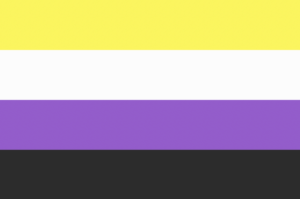Open banking is being embraced by banks and Fintechs alike.
It’s still young, but it’s evolving at light speed.
And pretty soon, it’ll be woven into the fabric of everyone’s financial lives.
In today’s episode, Rafa Plantier, Country Manager, UK & Ireland at Tink, covers what you need to know about the open banking transformation.
He explains:
- Why open banking is a more inclusive way of offering financial services
- Why partnerships are the key to success for banks and Fintechs
- How open banking and newer payment solutions will become standard
The evolving use cases for open banking
Organizations are using open banking in a very different way from when the industry started in earnest a little over 5 years ago.
The initial use cases for open banking were propositions in personal finance management applications — like the Tink app.
But now, companies are taking a more targeted approach to open banking.
As an example, Rafa points to mortgage applications.
Where once you needed to submit a year’s worth of payslips and bank statements and wait forever for a credit decision, now you can simply use a picture ID.
This is a targeted use case, but it’s much more central to the average person’s life than a PFM application.
At the same time, open banking is also becoming more tactical for users.
For example, Rafa moved to the UK 5 years ago.
Before the implementation of open banking, he could potentially not have enough credit history in the country to get approval in a credit decision.
“Open banking is a measurably more inclusive way of offering financial services.” — Rafa Plantier
Now, those in a similar position — and many others financially underserved — can share all of their financial data to increase their odds of credit approval.
The power of the partner
When it comes to banks and Fintechs, open banking is making partnerships more important than ever.
Looking across the international landscape, it’s easy to see why.
If you are working in, say, 15 different countries with your financial product, that would mean 15 different sets of financial institutions, split into many more different brands.
Integrating with all of them and harnessing the financial data for your product is an incredibly complex undertaking from an engineering perspective.
And developing the service itself is fundamentally different than developing deploying and maintaining financial services.
“There’s so many different areas where you may need financial data or payments. And building this is so different in nature that it would be quite unorthodox not to partner.” — Rafa Plantier
Whether you’re building a payments business, an identity business or regulatory technology, partnering is essential to successfully building your solution.
How innovation is woven into our financial lives
The proliferation of use cases is demonstrating the power of open banking.
And in many ways, its rise parallels that of the payments space over the last decade — and mirrors trends with every step of innovation over the last 60 years.
“As an industry, payments has always been quite incremental.” — Rafa Plantier
Take the rise of Visa in the 60s, when authorization, capture and settlement systems began to replace calls and reconciliations of paper drafts.
Or look at the explosion of Near Field Communication payments across Europe.
10 years ago, many questioned the benefits to the consumer and even the safety of the technology.
Yet, like financial innovations before it, it became woven into the fabric of everyone’s financial lives.
Open banking is at the start of the same journey — and pretty soon, any skepticism will dissipate into a new financial normal.
To ensure that you never miss an episode of Payments Innovation, subscribe on Apple Podcasts, Spotify, or here and don’t forget to check out our YouTube!
Until next time!
———————————————————————————————————-

